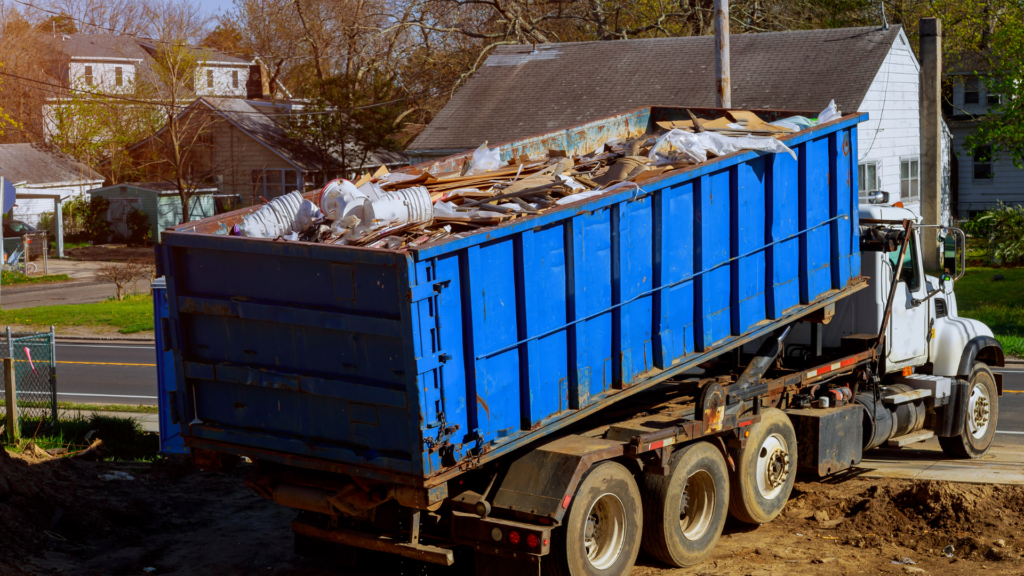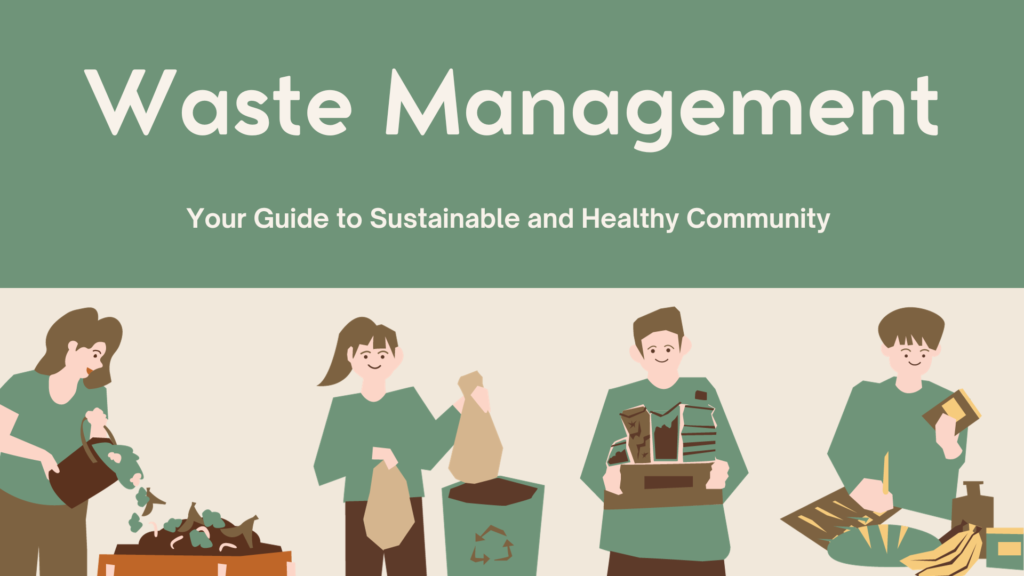Proper waste management is crucial in maintaining community health and promoting sustainability. Inefficient waste disposal can lead to various environmental and public health issues, including pollution, the spread of diseases, and the depletion of natural resources.
Dumpster rental, junk removal, and recycling services are crucial to managing these diverse waste streams. Introducing customer-focused solutions in these areas addresses the environmental impact and enhances the overall experience for individuals and businesses.
Finding the Perfect Dumpster Rental
Assess the amount of waste you dispose of to determine the appropriate dumpster size. Choosing a size that fits your needs prevents overfilling or paying for unnecessary capacity. Different dumpster rental services may have restrictions on the types of waste they accept. Ensure that the service can accommodate the specific materials you need to dispose of, whether household debris, construction waste, or hazardous materials.
Look for services that offer a range of dumpster sizes and rental durations. This flexibility allows you to choose a solution that aligns with your project’s requirements. Choose a company with transparent pricing. Avoid hidden fees by understanding the cost structure upfront, including potential charges for exceeding weight limits or extending rental periods.
Assess the responsiveness and helpfulness of the customer service team. A customer-centric company will address your inquiries promptly and assist in the rental process.

The Junk Removal Process
The junk removal process involves several steps, from scheduling the service to picking up and disposing unwanted items. Here is a step-by-step guide to help you navigate the junk removal process, from scheduling to the satisfying moment of a spotless space.
- Scheduling: You can contact the junk removal service through various channels, such as phone calls, online forms, or mobile apps. The service gathers information about the type and volume of junk to be removed, allowing them to provide accurate quotes and determine the appropriate resources needed for the job.
- Estimation and Planning: Photos or virtual consultations can guide an accurate quote for residential areas with transparent pricing and no hidden fees. For commercial spaces, on-site visits ensure precise estimates and discuss specific waste types or handling requirements.
- Quoting and Agreement: The junk removal service offers a precise estimate based on the volume, type of items, and any additional services required. Once the customer agrees to the terms and pricing, the service confirms the appointment and discusses the preferred date and time for the junk removal.
- Preparation and Pickup: The service may guide customers on how to prepare for junk removal. They may provide clear instructions on acceptable items and sorting tips. The service includes managing hazardous materials according to regulations, and trained personnel ensure safe and compliant disposal.
- Clean-up: After removing the items, the team thoroughly cleans the site. It includes sweeping the area and ensuring no debris or remnants are left behind. They provide disposal certificates for industrial pickups for documentation and peace of mind.

Recycling Tips to Sustain the Community
Recycling is a critical practice that individuals and businesses can adopt to contribute to environmental sustainability and community well-being. Please familiarize yourself with local recycling guidelines to understand which materials they accept for recycling in your area. Guidelines may vary, so it’s essential to stay informed.
Sort recyclables from non-recyclables. Separate materials like paper, cardboard, glass, plastic, and metal to ensure that they can process each type of material efficiently. For businesses, provide clear sorting guidelines and convenient recycling bins for employees and customers.
Take advantage of local recycling collection programs. Many communities provide curbside pickup or have designated drop-off locations for recyclable materials. This program also applies to small businesses, while large-scale and industrial companies can hire a dumpster rental service for convenience.
Recycling reduces the need for extracting and processing raw materials. It diverts materials from landfills, reducing the volume of waste accumulating in these areas. Recycling creates a healthier environment for everyone by reducing pollution and resource depletion.
Scale your Dumpster Rental Business
Case Studies and Success Stories
Streamlining Spring Cleaning for Busy Families
The Rodriguez family from Orange County has two working parents and three active kids. For the parents, spring cleaning felt like a daunting mountain to climb. They discovered a local dumpster rental service offering flexible scheduling and weekend deliveries.
Mitch, the head of the household, booked a small dumpster, sorted their clutter throughout the week, and enjoyed a stress-free weekend tossing junk without leaving their driveway. The convenient service and friendly customer support left them feeling refreshed and empowered.
Dealing With Renovation Chaos
Claude Lee faced the challenge of renovating his bakeshop kitchen while staying open for business. He partnered with a dumpster rental company offering compact dumpsters and frequent pickups to minimize disruption. The company understood the bakery’s unique needs and provided exceptional service, ensuring efficient waste removal without impacting customer flow.
Claude shared in a review, “Renovating while staying open was a gamble, but our dumpster rental partner made it a breeze. They were flexible, reliable, and truly understood our needs. We couldn’t have done it without them!”
Research and understand your local area’s specific waste management and recycling regulations. It includes rules on the disposal of different types of waste, recycling requirements, and any restrictions on hazardous materials. Recycling guidelines can vary, so knowing what can and cannot be recycled is essential. It may include paper, cardboard, plastics, glass, and metals.
Stay informed about any updates or changes in local waste management regulations. Regulations may evolve to address emerging environmental concerns or to promote more sustainable practices.
Correctly identify and separate hazardous materials. Electronics, batteries, and certain chemicals require special handling and disposal. Usually, trained professionals handle these types of items for proper disposal.
When hiring dumpster rental or junk removal services, ensure the provider is licensed and compliant with local waste management regulations. Licensed services are more likely to follow proper disposal procedures and adhere to environmental standards.
Conclusion
Responsible waste management and recycling are pivotal in fostering sustainable and healthy communities. Dumpster rental and junk removal services prioritizing customer needs, flexibility, and sustainability contribute to efficient waste management. Individuals and businesses must be aware of and comply with local waste management regulations to further promote sustainability. It includes proper sorting of recyclables, responsible disposal of hazardous materials, and staying informed about any changes in guidelines.
Individuals and businesses may take proactive steps towards responsible waste management and recycling in the spirit of community well-being. By making informed choices, engaging with local recycling programs, and advocating for sustainable practices, everyone can create cleaner, healthier, and more environmentally friendly communities.
Find Your Perfect Waste Management Partner Today and Master the Art of Effortless Recycling
Explore your municipal directories or ask for recommendations from friends and neighbors to find reputable dumpster rental and junk removal services in your area. Online platforms like Yelp or the Better Business Bureau can provide insights into other customers’ experiences. Make recycling effortless by labeling bins for recyclables, compostables, and non-recyclables.
Spread awareness about responsible waste management and recycling. Share the insights gained from this guide with friends, family, and colleagues. Encourage others to adopt eco-friendly practices for the collective benefit of the community.

